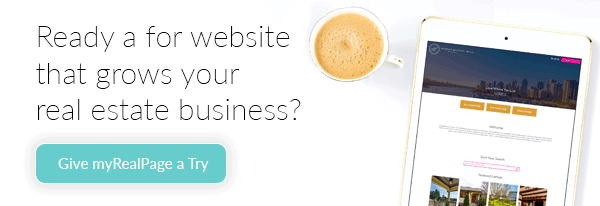How Realtors Can Get Free Press and Media Attention

What’s better than creating buzz for your real estate business?
When someone else creates the buzz for you — for free!
That’s the beauty of press. And that’s why press attention is often tricky to attract, especially for small businesses that don’t have their own PR teams.
But it’s not impossible. Pick up any newspaper with a story about real estate market news, and you’ll probably find quotes from a local realtor.
You can be the realtor in that story, and plenty of others, too.
Read on for our top strategies for getting free press as a realtor.
1. Establish your credibility as a source
Unless you’re doing something completely wacky or effective that everyone’s talking about, you’re probably not going to be the focus of any news story.
And that’s okay! What you can and should strive to achieve is to be considered an expert on real estate matters. Journalists love having a trusted source they can turn to again and again. You want to become one of them.
To do that, you need to prove your expertise and credibility. You want them to notice you. Here’s how to do it:
- Create your own timely content. Pay attention to the news cycle, especially to stories related to real estate, the rental market, local neighbourhoods, and home and design trends. Publish your own blog content on those topics using your knowledge as a realtor to offer an expert perspective.
Your goal should be to offer context or insights that add something to the news, not just recycle it. When reporters are looking for a local realtor to speak to for their next story, you’ll stand apart from the crowd.
- Share on Twitter. Like you would with your other blog content, share your newsy posts on Twitter. Make sure your tweet connects to the news you’re weighing in on; for example, “Worried about mortgage changes? I address the biggest fears in my latest blog post.” Look for hashtags being used to discuss the topic, and use those in your tweets.
2. Promote yourself as a source
Once you’ve got the content that proves your expertise, you’ll need to promote yourself as a source for journalists. It’s as simple as stating your availability and willingness to speak to reporters. Here’s how:
- Add it to your Twitter bio and your LinkedIn summary. For example, “Canadian real estate expert” or “Trusted voice on Vancouver real estate.”
- Include it on your website. Try this: Google “[your city name] real estate expert” and see what comes up. You might find a few realtors in that particular area who have made that phrase an integral part of their website. You should, too! Work it in on your bio page, your contact page, and even in your website headline.
3. Follow and connect with reporters
Start paying attention to the bylines on media articles about real estate and related topics. Find those reporters on Twitter, and follow them. Create a private Twitter list for the media accounts to follow so you’ve got access to all of them with one click.
Once you know the real estate reporters in your area, find ways to engage with them. If they tweet about something you can weigh in on, reply to their tweet with an insightful comment. Or retweet their content with comments of your own. This is a powerful way to get noticed as a potential story source.
Another reason to keep a close eye on journalists’ Twitter activity: it’s not uncommon for reporters to ask for sources on Twitter. You’ll want to be at the ready when someone tweets looking for a “Toronto condo expert.”
4. Know what journalists want
To become and to remain a trusted source for the media, you need to give them what they want. (And it’s more than great soundbites and insider info.)
Here’s a look at what journalists like and dislike when it comes to interviewees and information sources:
- Emails. If a reporter emails you, do not phone them back. Don’t call them unless they’ve asked you to, or it’s an emergency (like if you need to rescind a quote and the deadline is fast approaching).
- Fast responses. Journalists are always on a deadline. If you receive an email, respond right away.
- Factsheets. Make a reporter’s life easier by providing a one-page document that contains all the biographical information they’ll need when writing about you. That includes your full name, your title, your birth date (not just your age; what if the story publishes after your birthday?), where you live, where you work, your credentials, and any important career highlights (such as being in the top five percent of agents across the country). A high-resolution photo of yourself is helpful as well.
- Unrehearsed answers. When answering a journalist’s questions, you want to sound intelligent and eloquent. But for a journalist, there’s nothing worse than an obviously rehearsed response. It sounds insincere, and like it came from a press release (boring!).
- Promotions. Remember: your reward for speaking to a journalist is the free press that follows. You don’t need to work in mentions of your business or your success in every answer you give. In fact, you definitely shouldn’t do that. If you appear to be overly promotional of yourself, you can’t expect to be called up as a source again.
Do you have any questions about working with journalists? What other tips are you looking for? Tell us in the comments, and we’ll do our best to help out!
Last Updated on May 2, 2025 by myRealPage


